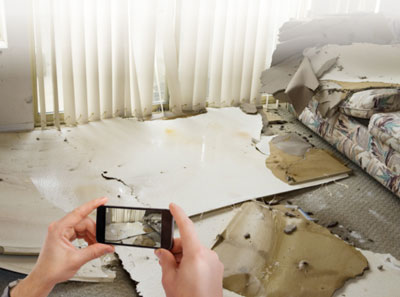Initial damage assessments by Pinellas County indicate that may homes may be substantially damaged. If your home has substantial damage, please read the following info:
What is Substantial Damage?
If the cost to repair your home or business equals or exceeds 50% of the market value of the structure before the damage occurred, then your home is substantially damaged and must be brought into compliance with flood damage prevention regulations, including elevating the building. Visit www.pinellascounty.org/flooding/buildsmart.htm to learn more or call (727) 464-3888 with questions.
Build back safer and stronger.
Contact your insurance Agent before starting work. Do not sign an Assignment of Benefits contract as a condition of having your home repaired.
Get required permits before you start any home repair, improvement, or construction.
Hire a Licensed Contractor. To find a contractor or confirm a contractor’s license is legitimate and current visit Pinellas County Construction Licensing Board PCCLB (https://public.co.pinellas. fl.us/clbsearch/index.jsp )
Look out for price gouging.
It is illegal for anyone to sell necessary goods or services at higher than normal prices during a state of emergency. To report price gouging, contact the Florida Attorney General at www.myfloridalegal.com or call (866) 966-7226.
Pinellas County participates in the National Flood Insurance Program (NFIP) by adopting and enforcing regulations and codes that apply to development in the floodplain. Pinellas County floodplain management regulations and the Florida Building Code (FBC) contain minimum NFIP requirements that are not only for new structures, but also for existing structures with proposed “substantial improvements” or repair of “substantial damage”
 Take photos or video of the damage
Take photos or video of the damage
To document your losses for your insurance claim before you move any debris or remove damaged belongings.
Make a list of damaged contents.
Remove wet contents promptly. Wet carpeting, furniture, bedding and other items holding moisture can develop mold within 24 to 48 hours. Clean and disinfect everything that got wet. Mud left from floodwater can contain sewage and chemicals. Do not discard damaged carpet and contents until after the adjuster’s inspection. Visit www.pinellascounty.org/flooding/safety.htm for tips on cleaning up after a flood.
File your insurance claims promptly.
There are time limitations on submitting claims with many insurance companies. Do not sign an Assignment of Benefits contract as a condition of having your home repaired. Pinellas County Flood Insurance Advocates are available to answer any questions you have about your flood insurance or the claims process. Visit www.pinellascounty.org/flooding/advocates.htm or call (727) 464-7700 for flood insurance assistance.
Take extra care in the prevention of mosquitoes breeding in standing water.
Remember the 3 Ds : Drain water when possible; Dress in light colors and cover all parts of the body; Defend with DEET, Picaridin or Oil of Lemon Eucalyptus.
Report blocked ditches, swales and canals at www.pinellascounty.org/reportanissue For additional information visit www.pinellascounty.org/flooding
Because Pinellas County has a proactive Floodplain Management Program and participates in the National Flood Insurance Program (NFIP) Community Rating System (CRS), you may get up to a 25% discount on your flood insurance premium. This saved residents over $5 million dollars per year on flood insurance premiums beginning May 1, 2016.